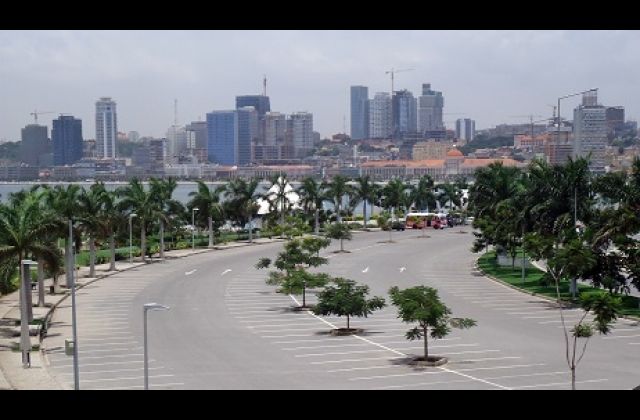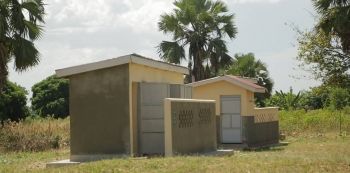
Angola’s capital Luanda has been ranked as Africa’s most expensive city and the second most expensive city to live in worldwide, losing the first spot it held initially, to Hong Kong.
Luanda lies on Africa’s west coast, and accommodates about six million residents.
The city’s high cost of living can be put down to the massive infrastructural investments taking place in response to the relentless domestic product growth from mining operations.
Ranking of the world’s most expensive cities to live in was conducted by the investment consultancy firm Mercer as part of its annual Cost of Living Survey.
Other African cities that ranked highly in the survey are; Kinshasa (6), N’Djamena (9), Lagos (13), Victoria (16).
Here is the full list as published by Mercer; mercer cost of living survey;
According to Mercer's 2016 Cost of Living Survey, Hong Kong tops the list of most expensive cities for expatriates, pushing Luanda, Angola to second position. Zurich and Singapore remain in third and fourth positions, respectively, whereas Tokyo is in fifth, up six places from last year. Kinshasa, ranked sixth, appears for the first time in the top 10, moving up from thirteenth place.
Other cities appearing in the top 10 of Mercer's costliest cities for expatriates are Shanghai (7), Geneva (8), N'Djamena (9), and Beijing (10). The world's least expensive cities for expatriates, according to Mercer's survey, are Windhoek (209), Cape Town (208), and Bishkek (207).
Mercer's widely recognized survey is one of the world's most comprehensive, and is designed to help multinational companies and governments determine compensation strategies for their expatriate employees. New York City is used as the base city for all comparisons and currency movements are measured against the US dollar. The survey includes over 375 cities throughout the world; this year's ranking includes 209 cities across five continents and measures the comparative cost of more than 200 items in each location, including housing, transportation, food, clothing, household goods, and entertainment.
"Maximizing return on investment with fewer resources and talent shortages worldwide makes growth initiatives more difficult for multinationals," said Mr. Bonic. "Organizations must ensure they can facilitate the moves they need to drive business results by offering fair and competitive compensation packages."
Mr. Bonic added that costs of goods and services shift with inflation and currency volatility making overseas assignment costs sometimes greater and sometimes smaller. Low levels of inflation have translated into fairly steady cost increases around the world.
The Americas
Cities in the United States have climbed in the ranking due to the strength of the US dollar against other major currencies, in addition to the significant drop of cities in other regions which resulted in US cities being pushed up the list. New York is up five places to rank 11, the highest-ranked city in the region. San Francisco (26) and Los Angeles (27) climbed eleven and nine places, respectively, from last year while Seattle (83) jumped twenty-three places.
In South America, Buenos Aires (41) ranked as the costliest city despite a twenty-two place drop from last year. San Juan, Puerto Rico (67) follows as the second most expensive location in the region, climbing twenty-two spots. The majority of other cities in South America fell as a result of weakening currencies against the US dollar despite price increases on goods and services in countries, such as Brazil, Argentina, or Uruguay. In particular, São Paolo (128) and Rio de Janeiro (156) plummeted eighty-eight and eighty-nine places, respectively, despite a strong increase for goods and services. Lima (141) dropped nineteen places while Bogota (190) fell forty-two places. Managua (192) is the least expensive city in South America. Caracas in Venezuela has been excluded from the ranking due to the complex currency situation; its ranking would have varied greatly depending on the official exchange rate selected.
Canadian cities continued to drop in this year's ranking mainly due to the weak Canadian dollar. The country's highest-ranked city, Vancouver (142), fell twenty-three places. Toronto (143) dropped seventeen spots, while Montreal (155) and Calgary (162) fell fifteen and sixteen spots, respectively.
Europe, the Middle East, and Africa
Two European cities are among the top 10 list of most expensive cities. At number three in the global ranking, Zurich remains the most costly European city, followed by Geneva (8), down three spots from last year. The next European city in the ranking, Bern (13), is down four places from last year following the weakening of the Swiss franc against the US dollar.
Several cities across Europe remained relatively steady due to the stability of the euro against the US dollar. Paris (44), Milan (50), Vienna (54), and Rome (58) are relatively unchanged compared to last year, while Copenhagen (24) and St. Petersburg (152) stayed in the same place.
Other cities, including Oslo (59) and Moscow (67), plummeted twenty-one and seventeen places, respectively, as a result of local currencies losing significant value against the US dollar. London (17) and Birmingham, UK (96) dropped five and sixteen places, respectively, while the German cities of Munich (77), Frankfurt (88), and Dusseldorf (107) climbed in the ranking.
A few cities in Eastern and Central Europe climbed in the ranking as well, including Kiev (176) and Tirana (186) rising eight and twelve spots, respectively.
Tel Aviv (19) continues to be the most expensive city in the Middle East for expatriates, followed by Dubai (21), Abu Dhabi (25), and Beirut (50). Jeddah (121) remains the least expensive city in the region despite rising thirty places. "Several cities in the Middle East experienced a jump in the ranking, as they are being pushed up by other locations' decline, as well as the strong increase for expatriate rental accommodation costs, particularly in Abu Dhabi and Jeddah," said Ms. Constantin-Métral.
Despite dropping off the top spot on the global list, Luanda, Angola (2) remains the highest ranking city in Africa. Kinshasa (6) follows, rising seven places since 2015. Moving up one spot, N'Djamena (9) is the next African city on the list, followed by Lagos, Nigeria (13) which is up seven places. Dropping three spots, Windhoek (209) in Namibia ranks as the least expensive city in the region and globally. Johannesburg and Cape Town also drop fourteen and eight places consecutively.
"Exchange rates' volatility amongst most African currencies and the concomitant impact thereof on inflation, some sooner and some later, directly contributes to the varying results when compared against the 2015 findings. The excessive cost of rented expatriate type accommodation in Luanda is greatly contributing to its retained status as one of the most expensive cities in the world to live in." explained Mr. Carl Van Heerden Mercer's Global Mobility Leader for Africa.
Asia Pacific
This year, Hong Kong (1) emerged as the most expensive city for expatriates both in Asia and globally as a consequence of Luanda's drop in the ranking due to the weakening of its local currency. Singapore (4) remained steady while Tokyo (5) climbed six places. Shanghai (7) and Beijing (10) follow. Shenzhen (12) is up two places while Seoul (15) and Guangzhou, China (18) dropped seven and three spots, respectively.
"The strengthening of the Japanese yen pushed Japanese cities up in the ranking," said Ms. Constantin-Métral. "However, Chinese cities fell in the ranking due to the weakening of the Chinese yuan against the US dollar."
Mumbai (82) is India's most expensive city, followed by New Delhi (130) and Chennai (158). Kolkata (194) and Bangalore (180) are the least expensive Indian cities ranked. Elsewhere in Asia, Bangkok (74), Kuala Lumpur (151) and Hanoi (106) plummeted twenty-nine, thirty-eight, and twenty places, respectively. Baku (172) had the most drastic fall in the ranking, plummeting more than one hundred places. The city of Ashkhabad in Turkmenistan climbed sixty-one spots to rank 66 globally.
Australian cities have witnessed some of the most dramatic falls in the ranking this year as the local currency has depreciated against the US dollar. Brisbane (96) and Canberra (98) dropped thirty and thirty-three spots, respectively, while Sydney (42), Australia's most expensive ranked city for expatriates, experienced a relatively moderate drop of eleven places. Melbourne fell twenty-four spots to rank 71.
Comments (0)
📌 By commenting, you agree to follow these rules. Let’s keep HowweBiz a safe and vibrant place for music lovers!












